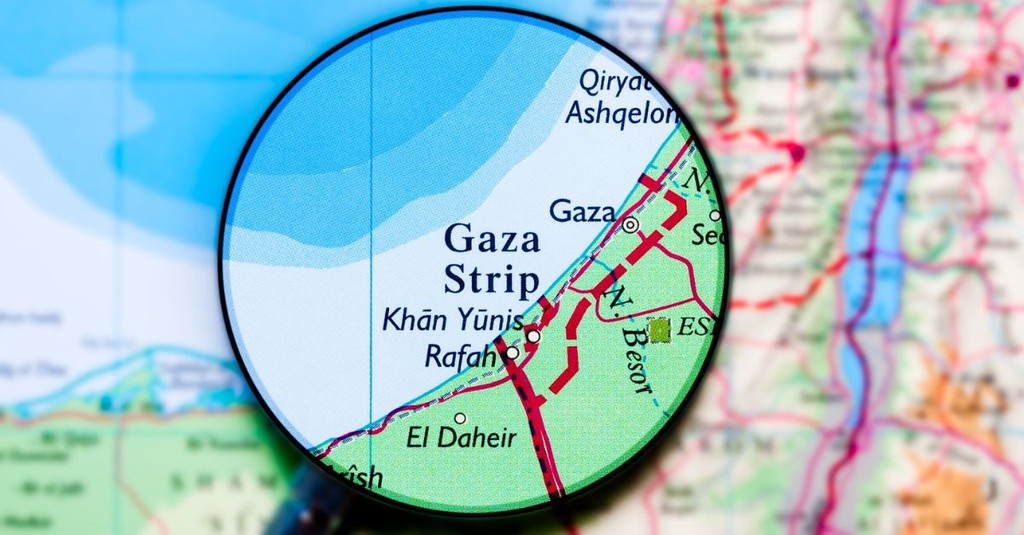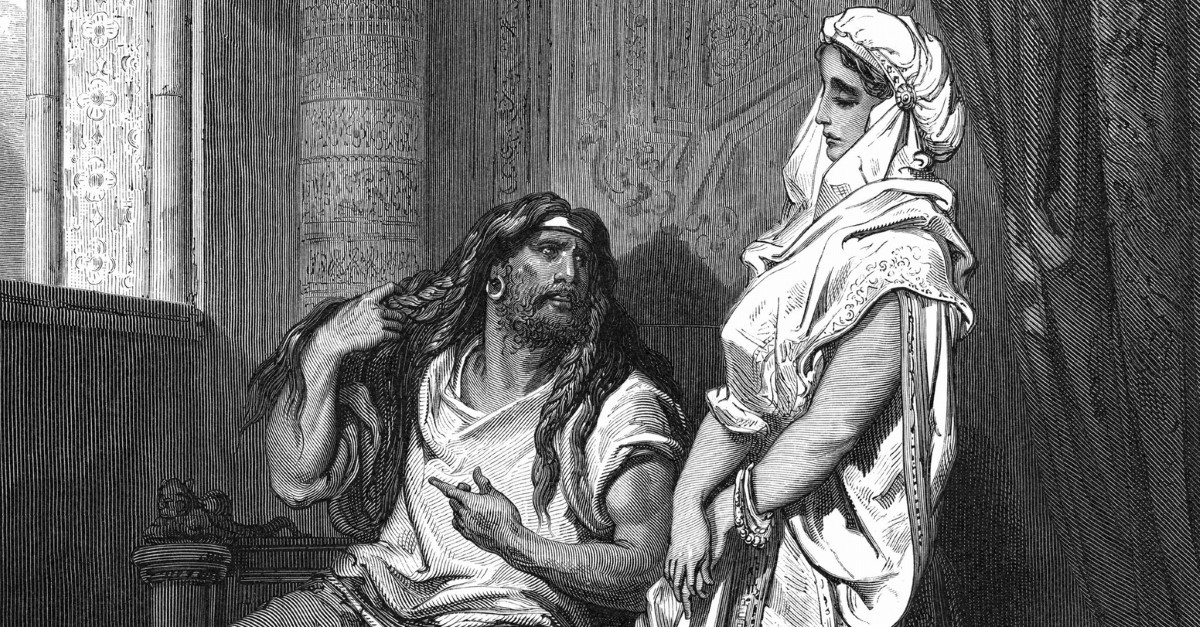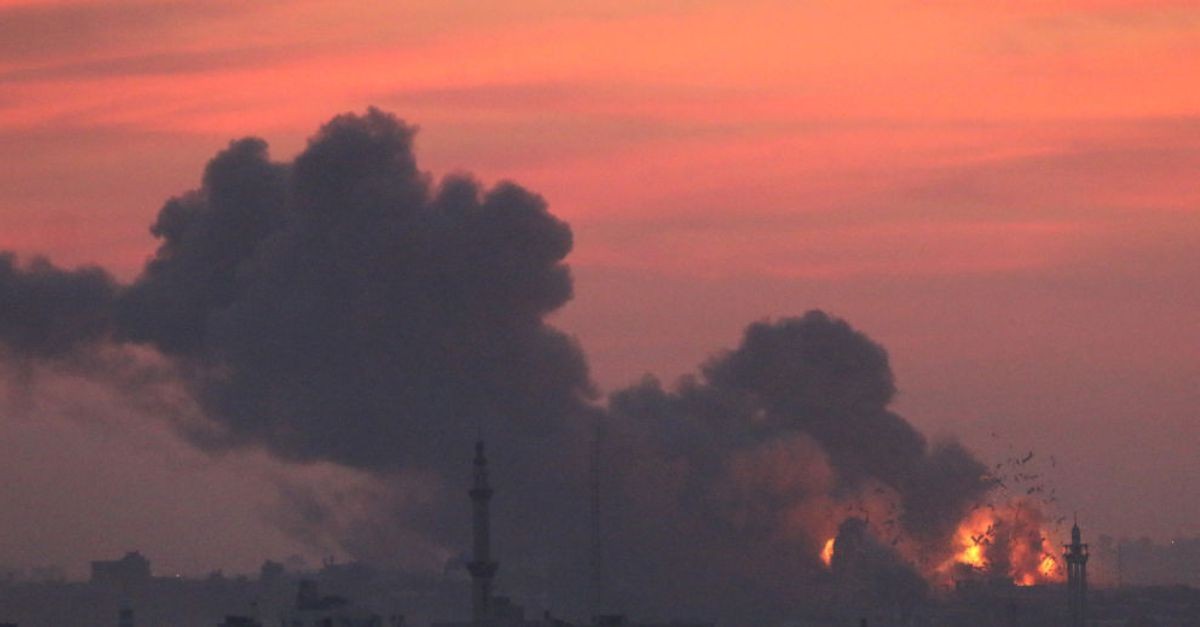
Headlines bombard us with news about the devastation in Gaza—the staggering death toll, the increasing war and bloodshed, the innocent lives lost. People on both sides cry for an end to the violence and the pain.
As Christians, we hear the news, and our hearts fill with compassion and anguish. Why is this happening? Why are people so eager to fight—and die—over this one small section of land?
Gaza, also called the Gaza Strip, is a thin piece of land of about 140 square miles located between Israel and Egypt. Roughly 2.3 million Palestinians live there, and it is a Palestinian territory. It is situated on the eastern coast of the Mediterranean Sea, with Egypt on its southwest and Israel on its east and north.
However, there is longtime animosity between Israel and Palestine. In 1947, the United Nations divided Palestine into an Arab and a Jewish state. This was to accommodate a post-World War Two desire for a Jewish homeland, but it came against the will of the local Arab population.
On October 7, 2023, the Islamic militant group Hamas killed more than a thousand people, mostly civilians, and took 250 others hostage in the deadliest attack in Israel’s history. Israel immediately declared war on Hamas, and as of this writing, more than 30,000 people have been killed.
Beyond a territory for present-day Palestine, the land is much desired by both groups. But there is also much biblical importance and history surrounding Gaza. Here are five biblical reasons by Gaza is important.
Photo Credit: ©Getty Images/pawel.gaul

1. Gaza is one of the earliest cities mentioned in the Bible.
Biblical history is ancient, and Gaza is one of the earliest cities mentioned in the Bible. Genesis 10 notes that, after the flood, Noah’s sons had sons, and from there, they spread out and repopulated the land. His grandson Canaan, son of Noah’s son Ham, was the father of the Hittites, Jebusites, Amorites, Girgashites, and other Canaanite clans, and scripture tells us “the borders of Canaan reached from Sidon toward Gerar as far as Gaza” (Genesis 10:19 NIV). Canaan was also, as the Bible tells us, cursed by Noah because Canaan’s father, Ham, offended Noah (Genesis 9:22-27).
“May Canaan be the slave of Shem,” Noah said (Genesis 9:27).
Gaza was part of the Promised Land, the land God promised to the Israelites after their exodus from Egypt. But the Israelites were not able to capture the region. The Lord had told Moses to capture all of Canaan, stating in Numbers 33:55, “But if you do not drive out the inhabitants of the land, those you allow to remain will become barbs in your eyes and thorns in your sides. They will give you trouble in the land where you will live.” Later, we’re told in Joshua 10:41,
“Joshua subdued them from Kadesh Barnea to Gaza and from the whole region of Goshen to Gibeon.”
The land was captured by the tribe of Judah, but it eventually came under the control of the Philistines. While the Israelites fought the Philistines often throughout the Old Testament, it appears Gaza was one area that remained under Philistine control.
Photo Credit: ©GettyImages/artisteer

2. God punished the Philistines (in Gaza) through Sampson.
The Book of Judges contains the story of the mighty warrior Samson, an Israelite judge bestowed by the Lord with great strength, though his womanizing ways got him into much temptation and trouble time and again.
Judges 16 begins by telling us the recently widowed Samson went to Gaza and spent the night with a prostitute. His enemies, the Philistines, heard he was there and laid in wait all night so they could attack and kill him, but he escaped (Judges 16:1-3).
Later, after he fell in love with and then was betrayed by the beautiful Delilah, to whom he told the secret of his strength was in not cutting his hair. The Bible tells us he fell asleep, Delilah cut his hair, and “then the Philistines seized him, gouged out his eyes and took him down to Gaza” (Judges 16:21).
But while he was imprisoned, his hair began to regrow, and his strength returned. He exacted his revenge on the Philistines soon after, there in Gaza’s temple of Dagon. He was on display there, paraded as a war spoil, and he asked to be placed by a pillar for support. Then, the Bible tells us, Samson “pushed with all his might, and down came the temple on the rulers and all the people in it. Thus he killed many more when he died than while he lived’ (Judges 16:30).
The story shows the power of God and how he can use even the most flawed and sinful people for his purpose and glory. The Philistines were longtime enemies and rivals of the Jews, and God used Samson to punish them.
Photo Credit: © Getty Images/Photos.com

3. The Bible prophesizes suffering and destruction in Gaza.
Because of the terrible and detestable sins of the Philistines, four of the Lord’s prophets— Jeremiah, Amos, Zephaniah, and Zechariah—prophesied judgment on Gaza. Jeremiah predicted great distress for the Philistines.
“The Lord is about to destroy the Philistines; the remnant from the coasts of Caphtor Gaza will shave her head in mourning; Ashkelon will be silenced. You remnant on the plain, how long will you cut yourselves?” he prophesied in the poetic oracles against the Philistines in Jeremiah 47:4-5.
In the Book of Amos, God’s prophet related that Gaza, along with other neighbors of Israel, would endure great punishment.
“This is what the Lord says: ‘For three sins of Gaza, even for four, I will not relent. Because she took captive whole communities and sold them to Edom, I will send fire on the walls of Gaza that will consume her fortresses” (Amos 1:6-7).
In the Book of Zephaniah, the prophet called Judah to repent, then described the awful destiny of her rebellious and sinful neighbors. As he prophesied, “Gaza will be abandoned and Ashkelon left in ruins” (Zephaniah 2:4).
And in Zechariah 9:5, the Lord prophet echoed that same fate for the land, decreeing, “Ashkelon will see it and fear; Gaza will writhe in agony, and Ekron too, for her hope will wither. Gaza will lose her king, and Ashkelon will be deserted.”
The future was bleak for Gaza, according to these prophets.
Photo Credit: ©Getty Images/Ahmad Hasaballah / Stringer

4. There is a Biblical lesson behind Gaza's many rulers.
After he led them out of Egypt, God ordered the Israelites to take full possession of the Promised Land. He told his people to drive out the inhabitants, destroy their false idols and temples, and possess the land, distributing it by lot among the clans (Numbers 33:50-54).
Later, on the verge of entering the Promised Land, as the leadership had passed from Moses to Joshua and Joshua prepared to cross the Jordan River to do so, the new leader was surely concerned. But God reassured him, stating in Joshua 1:9,
“Have I not commanded you? Be strong and courageous. Do not be afraid; do not be discouraged, for the Lord your God will be with you wherever you go.”
Thus Joshua begins the conquest, leading the tribes of Israel, a vast army, to certain victory over the Canaanites. Yet, they did not conquer all of it. We don’t know exactly why, but God ordered them to drive out their inhabitants and possess the lands—yet in Joshua 11:22, we’re told Anakites remained in Gaza, Gath, and Ashdod. The Anakites were giant, warlike people who ended up posing quite a threat to the Israelites. (Goliath, eventually defeated by David in 1 Samuel 17:50, was an Anakite descendant from Gath, near Gaza.)
We don’t know why they did not drive out the Anakites from Gaza and elsewhere in the Promised Land. After all, God had told them clearly in Numbers 33:56 that if they do not drive out the inhabitants, “Then I will do to you what I plan to do to them.”
Over the years, even though the Israelites maintained control over most of the surrounding land, God’s words were indeed true. The Philistines remained a thorn in the side of the Israelites. Sometimes, Gaza was controlled by other peoples; sometimes, it was under Israeli control.
Over the years, we find the same. In the 20th century, Gaza was controlled at various points by Britain, then Egypt, then Palestine, then Israel, and then Palestine once more. The current fighting today is yet another example of how a small area might not seem to be such a problem at first, yet it remains a “thorn” with deadly consequences.
Photo Credit: © Getty Images/Sashkinw

5. Gaza is thought to be the site of the first non-Jewish convert to Christianity.
In the Book of Acts, at first the Gospel was spread only to Jews. The apostles preached in temples and, imbued with the power of the Holy Spirit, converted thousands to The Way, which is what Christianity was initially called. But later, after the stoning of Stephen as the first Christian martyr, the believers scattered. Even before Peter’s vision of the Gentiles and Jews and before Saul’s conversion on the road to Damascus, the apostle Philip was working and preaching in Samaria.
That’s when the Bible tells us and angel visited Philip and told him, “Go south to the road—the desert road—that goes down from Jerusalem to Gaza” (Acts 8:26).
Philip obeyed and soon encountered an Ethiopian eunuch who was hungry to hear the Gospel. Philip complied, teaching and converting the man to Christianity. Then, as they came to some water between Jerusalem and Gaza, the Ethiopians asked to be baptized. As we’re told,
“Then both Philip and the eunuch went down into the water, and Philip baptized him” (Acts 8:38).
Here, on this road to Gaza, was perhaps the first Gentile (or at least non-Jewish) convert to Christianity, a significant moment in the early church and a significant moment for all of God’s kingdom. While scholars debate whether the first Gentile convert was this Ethiopian or Cornelius, the Roman centurion converted in Acts 10 by Peter, still—it was a big moment in the faith.
RELATED PODCAST:
To top it all off, immediately after the eunuch’s conversion, the Bible tells us, “the Spirit of the Lord suddenly took Philip away, and the eunuch did not see him again, but went on his way rejoicing” (v. 39). We don’t know whether this is a figurative or a literal taking away. The original Greek word used here is harpazō, which translates to catch, steal, carry off, or snatch away. Still, it is a noteworthy and quite dramatic moment, all taking place there near Gaza. And Gaza, being a port city on the Mediterranean, would have been an ideal place for Christianity to reach.
Clearly, Gaza has much biblical significance. It’s long history, its proximity to Jerusalem, its historic, and even its prophesies mark it as a place of great meaning both for Jews and for Christians. As battles continue over this stretch of land, may we all remain in prayer for the people who live there and the innocent lives affected daily.
Photo Credit: ©Getty Images/Julie Ayers

Originally published Monday, 04 March 2024.
